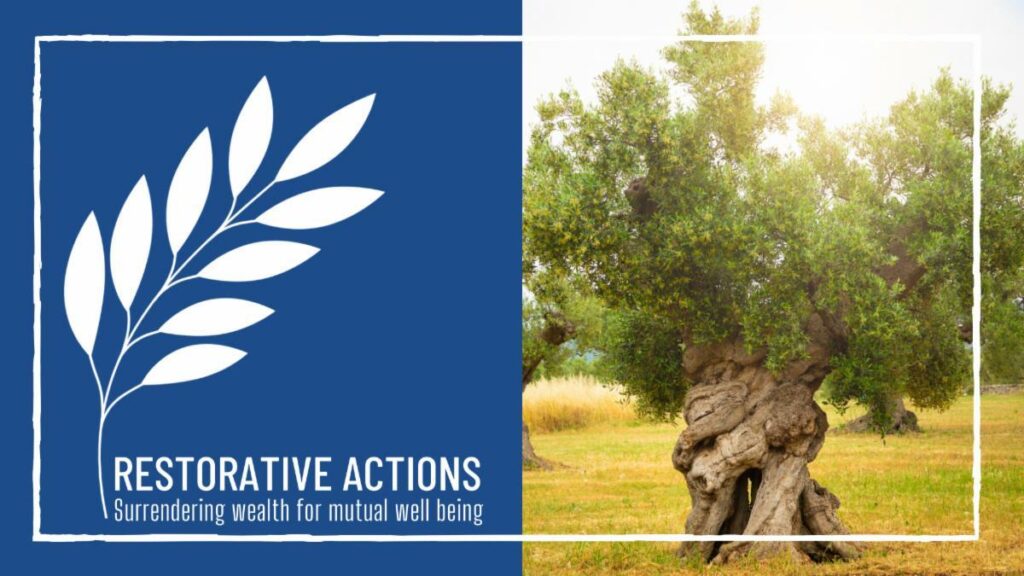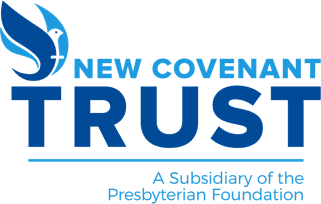
As Christians — and as U.S. Americans — we are called to restore wealth to the Afro-American and Indigenous peoples from whom it has been taken and long been denied.
That’s the core principle behind Restorative Actions, an initiative launched in 2021 by a team of servant leaders within the Presbyterian Church (U.S.A.), with the goal of offering individuals and organizations who benefit from institutional racism an avenue to surrender those gains. The latest research shows that white households hold 15% more wealth than they would otherwise have, if not for a legacy of property seizure and systemic oppression of wealth against Afro-American and Indigenous peoples.
Restorative Actions is working toward decolonizing wealth, creating parity and eventually putting pressure on the United States to take action on making reparations. This long-overdue initiative provides a mechanism for PCUSA mid-councils, congregations, individuals and other organizations to review their assets, determine what portion of their wealth can be attributed to white supremacy, and surrender that amount to private charitable trusts held via the Presbyterian Church (U.S.A.) Foundation and New Covenant Trust Company.
Separate trusts are being established for the two populations. Each trust will have trustees who are representative of the two communities they are intended to benefit — African-descended people in the United States whose ancestors were enslaved, and American Indian, Alaska Native and Native Hawaiian individuals and communities. These trustees will make distributions as they determine how the funds can best increase opportunities for individuals and communities within each population to flourish.
“Restorative Actions allows those who’ve benefited from institutional racism to witness against injustice by putting their own financial resources toward the need to make a change,” says Jim Koon, Director of Financial Services, Synod of Lakes and Prairies. “So ultimately, we see it as a way for the church to facilitate a groundswell movement that ultimately tells government at various levels that we don’t find the financial systems that perpetuate racism and the wealth gap acceptable.”
“It is time to act,” adds Rev. Sarah Moore-Nokes, member-at large with Winnebago Presbytery in Wisconsin. “People are hungry for something that they can actually do” to make a difference.
To date, more than $800,000 has been committed to the project, and this is just the beginning.
Origins of the Project
The idea for Restorative Actions was born during conversations at the 2018 PCUSA General Assembly among Koon, Moore-Nokes and other passionate church leaders, including Elona Street-Stewart, George Bentley, and later Kerry Rice and Rev. Dr. J. Herbert Nelson.
“I like to say all good things happen in bars at General Assembly,” jokes Moore-Nokes. She now serves as a volunteer Restorative Actions program advocate, along with Koon. “I said to Jim, ‘If you do something with this, I want to be part of it.’”
The idea began to take shape in 2019 at a PCUSA Mid-Council Financial Conference, where Koon, Moore-Nokes and the others began to talk about logistics. This was right before the Covid-19 pandemic, and the George Floyd and Breonna Taylor murders. Rather than stall the discussions, the tragic events of 2020 energized the small but determined group.
“I think we realized that we needed to get moving with more urgency,” Koon says. An official working group was formed soon after. It includes designated theology and program leads from the two affected communities, and volunteer advocates, including Koon and Moore-Nokes.
“Our theology and program co-leads are driving the content and messaging, and helping us understand the framework in which we are operating,” says Moore-Nokes. “Those of us who are white have a different role, and that is we are all volunteers. We all play an advocacy and supporting role in various ways.”
The group also determined they needed buy-in from the PCUSA to move forward. “We recognized that if we’re to try to build something, we needed some critical mass, because part of the process would be building trusts and trust facilities,” says Koon.
Koon and the team approached Synod of Lakes and Prairies about surrendering 15% of its wealth, followed by a similar request to Oak Grove Presbyterian Church. Both agreed.
The organization’s “soft launch” came in early 2021, when volunteer advocates Street-Stewart and Gregory Bentley presented on the book, “Decolonizing Wealth,” at a PCUSA conference. Part of that presentation included a short introduction to Restorative Actions.
From there, the working group built a website, and went on to have many, many discussions with interested individuals, churches, presbyteries, sessions and other church institutions about joining the initiative. Some have joined, and other discussions are ongoing.
“Out of those conversations grew some tasks for us” says Moore-Nokes. “For example, we found that we needed a little bit better education for pastors so that they could begin to have these conversations in their congregations. So, we created the curriculum that’s available now for congregations to help them consider the role of reparations and repair in their context.”
A Desire to Make Real Change
The good work of Restorative Actions has not been publicized widely yet, and Moore-Nokes says that’s because, in part, “we wanted to make sure that the facility, the mechanisms, the trusts were in place before we did a lot of solicitation” for surrender of wealth.
Putting the financial puzzles pieces in place has proven to very involved, she adds. The Presbyterian Foundation and New Covenant Trust Company have been true partners throughout the process.
“New Covenant Trust has been, not just advisory, but collaborative with us. They’ve really helped us work through some of our conundrums around the actual mechanisms that we’re now putting into place. They’ve worked with us to figure out short-term, intermediate-term and long-term ways in which we can move the initiative through its phases.”
The application for the Afro-American Charitable Trust was recently approved by the IRS, trustees are being onboarded, and the first distributions will be made later this year. The Indigenous Charitable Trust is expected to be fully executed by the end of the year. Additional trust facilities benefiting these communities may be implemented at a later date.
“We hoped for a different timeline, and that didn’t turn out to be the case,” says Moore-Nokes. “Though we sometimes wish things would move along faster, the core value is that we do this right and not fast.”
While the initiative is still in its early stages, Koon hopes that Restorative Actions’ work will become representative of “an American desire to make real change — to say we don’t want to continue to operate as we’ve always been operating. And ultimately, see reparations at a national level.”
For more about Restorative Actions’ transformative approach and impact, visit restorativeactions.org.
